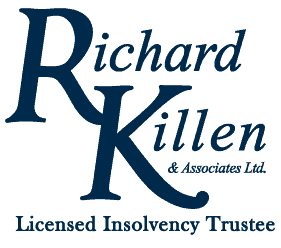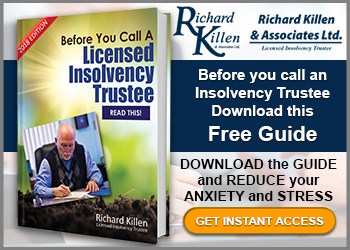Bankruptcy in Ontario – How Does Bankruptcy Work in Ontario
This article is about Bankruptcy Ontario or said another way what you need to know about filing or declaring bankruptcy in Ontario according to the Bankruptcy and Insolvency Act.
In addition to the laws and guidelines defined under the federal Bankruptcy and Insolvency Act (BIA) in Canada, claiming bankruptcy in Ontario has specific provincial laws that control insolvency proceedings in the province.

The four primary pieces of legislation that govern Ontario Bankruptcy laws are:
- The Canadian Bankruptcy and Insolvency Act (BIA)
- The Ontario Executions Act regulates exemptions of assets in the province of Ontario.
- The Ontario Limitations Act prescribes the period of time court proceedings with respect to debts that were sold to a collector must be initiated. In essence, this Act defines how the statute of limitations affects old debt.
- The Personal Property Security Act defines how secured creditors are treated in a personal bankruptcy.
These laws altogether define your rights and the rights of your creditors when declaring personal bankruptcy in Ontario and can ultimately affect your filing in Ontario. For instance, Ontario did not offer any exemptions for homeowners who filed for bankruptcy until the exemption law in December 2015, which meant that anyone who filed for bankruptcy then would lose their home without question. With the new law outlined in The Ontario Executions Act, you can now keep up to $10,000 of the equity in your home, which could mean that people going bankrupt in Ontario these days have a chance to keep their home.
HOW TO FILE FOR BANKRUPTCY IN ONTARIO
The best thing about filing for bankruptcy in Ontario is that it can offer you a fresh start. One way it can do this is by giving you debt relief, particularly when your debt level has reached a point where you are no longer able to pay it off on your own. However, it’s very important to know that under bankruptcy Ontario law some types of debts are not included when you go bankrupt.
Almost all unsecured debts that are not tied to property or collateral can be eliminated in a bankruptcy discharge, such as:
- credit card debt,
- retail store cards and accounts,
- personal loans,
- installment loans,
- bank loans,
- unsecured lines of credit,
- finance company loans,
- payday loans,
- past due utility bills,
- judgment debts from lawsuits,
- all tax debts, including personal income tax or GST/HST/QST
- student loans more than seven years old.
Under the Ontario Limitations Act, the statute of limitations on most debts expires after two years from the date the debt became delinquent. However, some debts are not subject to the statute of limitations and are not included in any insolvency filing. These debts are:
- Court-ordered debts such as child support, alimony payments, fines and parking tickets,
- student loans that are less than seven years old,
- debt related to fraud or misrepresentation, and
- government overpayments.
WHAT ASSETS ARE EXEMPT FROM BANKRUPTCY IN ONTARIO?
While declaring bankruptcy can mean that your debts will be eliminated, it can also mean that you may lose some of your assets. Once you become legally bankrupt, the law requires that you surrender your assets to a Licensed Insolvency Trustee. These assets will then be sold and the money earned from the sale will be distributed among your creditors.
In Ontario, you don’t need to worry that you will lose everything when you go bankrupt as federal and provincial laws allow you to keep certain assets. Under The Ontario Executions Act, certain assets are exempt from seizure by a bankruptcy trustee, including:
- Your primary residence, as long as the home’s equity does not exceed $10,000
- One motor vehicle worth less than $6,600
- Up to $13,150 of household furnishings and appliances
- Up to $11,300 of tools of the trade (any equipment that you use for business or to earn a living)
- No limit on clothing for you and your family
- All necessary medical items for you and your dependents
- Certain types of life insurance
- All savings in Registered Retirement Savings Plans (RRSPs), Registered Retirement Income Funds (RRIF), and Savings and Profit Sharing Plan (SPSP) funds, except for contributions in the 12 months before the date of your filing
- For farmers, up to $29,100 for livestock, fowl, bees, books, tools and machines of the trade
At Richard Killen & Associates, when you come to us for a free consultation we will ask you to list down all the assets and possessions that you own and assign a fair value to each item. We can then help you calculate which items you can keep and which assets you will need to surrender when you decide to claim bankruptcy.
FILING BANKRUPTCY IN ONTARIO
A bankruptcy in Ontario can only be filed through a Licensed Insolvency Trustee.
The first step in the process is to book a free consultation to find out if you are eligible to file for bankruptcy in the first place. If you live in Ontario, run a business, or own property in the province, and if you owe more than $1,000 in unsecured debt, then you meet the initial criteria. Your licensed trustee will then review your debts, assets, and income to further find out if you are no longer able to pay monthly debt obligations and if your total debts are more than the value of your assets to declare you insolvent.
Once it is established that you are insolvent, your trustee will go on to discuss all your alternatives to bankruptcy as prescribed in The Bankruptcy and Insolvency Act, calculate and compare the cost of each alternative, and provide unbiased recommendations based on your unique financial situation.
Once you decide to file, your trustee will prepare all the paperwork to file your claim with the Office of Superintendent of Bankruptcy.
Once you sign the paperwork and these are filed with the government, you become legally bankrupt and your creditor protection begins.
Your right to the automatic stay of proceedings provides immediate suspension of all collection actions and any attempts made to force repayment from you from this point on will be illegal. These collection activities include:
- Collection calls
- Wage garnishment
- Repossession
- Foreclosure
This protection from creditors can give you some needed breathing room as you go through the legal process of bankruptcy.
TALK TO A BANKRUPTCY TRUSTEE ONTARIO
Only you can decide if going bankrupt is the right thing to do. It will have a significant negative impact on your credit and affect your ability to borrow money later in life. It will also become a matter of public record. You will have to consider how it will impact your quality of life, as well as your family’s, those who have co-signed debts with you, and others connected with you.
The best thing is to ensure that bankruptcy is your best option. Make sure to consider all your alternatives:
- Debt consolidation
- Credit counseling
- Debt settlement
- Consumer proposal
Each case is different and there is no one-size-fits-all solution. This is why any final decision should be made only after careful consultation with a licensed insolvency trustee.
The bankruptcy trustees at Richard Killen & Associates offer free, no-obligation, initial consultation to anyone who is seeking help from overwhelming debt and would like to know their best options. We will review the details of your overall financial situation, see if any other debt-relief options can be tried first, and recommend bankruptcy as the last option if we find that is to your best advantage.
Help in regard to bankruptcy in Ontario and declaring bankruptcy in Ontario is a phone call away so please call for your free consultation at 1-888-545-5365 for a fresh start.










